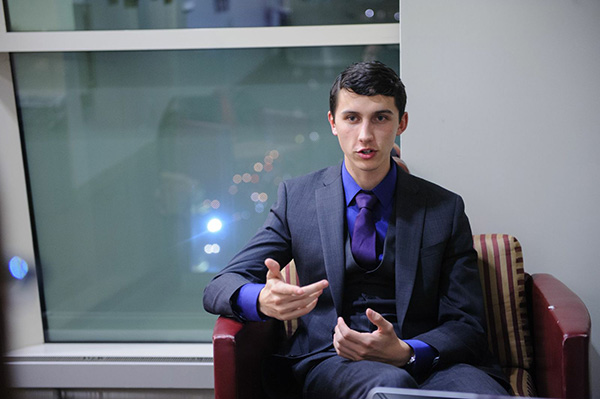
With so many news headlines revolving around how much privacy the Internet offers users, some students are preparing to defend online privacy.
Steinhardt and NYU-Poly senior Alec Foster has created an organization called the Student Internet Alliance, which seeks to advance the digital rights of students.
“There are many ways in which Internet policy directly affects students,” Foster said. “Internet policy has been in the news in the past year more than ever before. It has dire needs for reform.”
The Net Alliance, whose board of directors currently includes Foster, Steinhardt senior Eli Kurland and Gallatin sophomore John Curran, received a Google Grant on Oct. 11 to help finance the organization.
Foster applied for the #freeandopen micro-grant, which was a competition among Google student ambassadors to submit proposals for a project that shows why a free and open Internet matters to students.
At NYU, the Net Alliance seeks to address some of issues students feel the Internet faces today as well as to create a template for other schools as they address student Internet concerns.
“There are very few instances where you could identify the problems a demographic faces better than that demographic could identify it themselves,” Kurland said. “To give the demographic the resources to identify and articulate and actually solve their own problems is a main component of what [the Net Alliance] does.”
Foster, who is also a member of the Student Senators’ Council Research and Development Committee, helped co-found the 24-Hour Hackathon held on Dec. 6. The Hackathon was a contest among NYU student developers to create an app that would benefit the university community.
The Net Alliance is currently creating an activist dashboard to facilitate some of the alliance’s larger goals by building a platform for activists to create campaigns for specific causes.
“All of the issues that we’ll prioritize for the year will be chosen by students,” Foster said. “Through our activist dashboard platform, students will be able to vote on what issues matter to them most in their community.”
Although the Net Alliance has developed quickly, its goal is to create an enduring organization.
“We’re hoping to create an organization and a movement that lasts much longer than our time here because these issues will keep coming up,” Curran said. “We’re hoping to create an organization that will continue to fight for the digital rights of students, so they can continue to maximize their potential for education.”
Foster and the rest of the group do not just seek to aid students in the United States, but they also aim to address censorship issues students in foreign countries face when using the Internet.
“When we had the idea for this organization, it was because it could adapt to the issues that have the most traction at any university or in any country,” Foster said. “Internet policy issues that affect us [in the United States] are different than those that affect students in Syria … We want to use the Internet to save it.”
A version of this article appeared in the Tuesday, Dec. 10 print edition. Bailey Evans is a staff writer. Email her at [email protected].





















































































































































